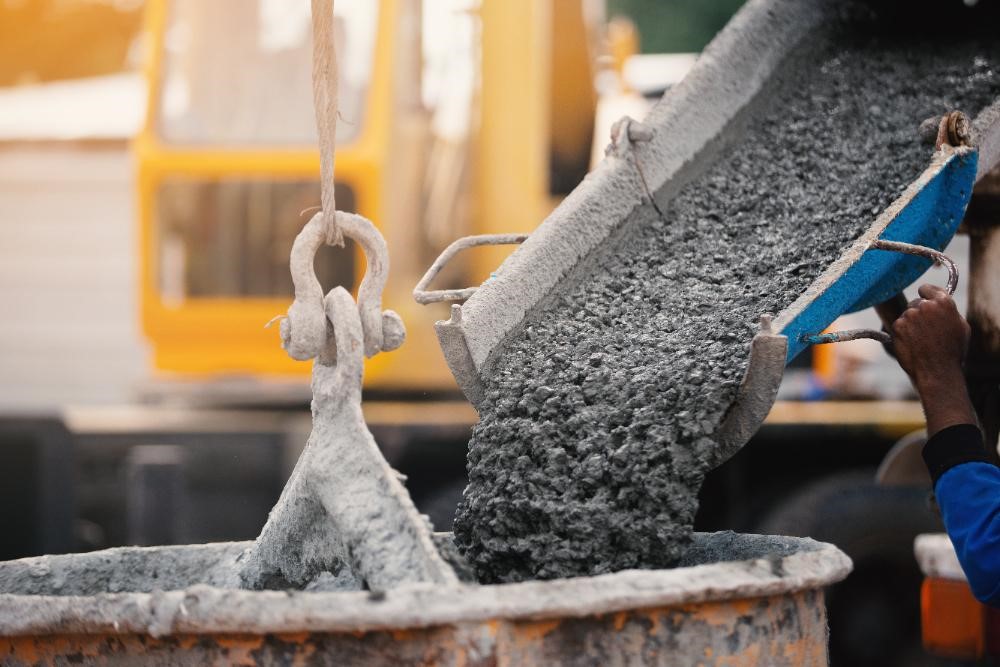
When you’re building a home, most people get excited about tiles, wall colors, or fancy kitchen designs. But here’s the truth—none of that matters if your foundation isn’t solid.
The foundation is what holds your home together. It’s the silent hero doing all the heavy lifting. And choosing the right cement for that foundation? That’s where it all begins.
In this post, we’re going to walk you through how to choose the best cement for foundation work—no complicated terms, no boring stuff. Just straight talk to help you build smarter.
What’s the Best Cement for Foundation?
If you ask any contractor, they’ll tell you: go with OPC 53 Grade cement. It’s strong, reliable, and sets fast—just what you need when you’re building something that needs to last.
But that’s not your only option.
Here are your top choices:
- OPC (Ordinary Portland Cement) 53 Grade – Strong and fast-setting, perfect for foundations.
- PPC (Portland Pozzolana Cement) – Takes a bit longer to set, but great for long-term durability.
- PSC (Portland Slag Cement) – Excellent if your site is near the sea or in a moisture-rich area.
Each type has its perks. The key is picking what suits your location and structure best.
What Exactly Is Cement Footing—and Why Does It Matter?
Think of cement footing as the solid base that everything else sits on. It’s kind of like the sole of a shoe—strong, balanced, and designed to carry weight.
Why it’s super important:
- It spreads the weight of your house so the soil doesn’t sink or shift.
- It supports pillars, walls, and everything in between.
- It keeps your structure stable—no wobbling or cracking later on.
If you skip the right cement footing, you risk the entire structure. And trust us, that’s not something you want to deal with later.
How Do I Know If the Cement I’m Buying Is Any Good?
Don’t worry—you don’t need to be a builder to spot quality cement. Just do a quick check when you’re at the store.
Here’s what to look for:
- Grade label – Ideally, 53 or 43.
- ISI mark – This shows it meets Indian standards.
- Manufacturing date – Try to use cement within 90 days.
- Condition of the bag – No tears, no damp patches.
- Reputation – Ask around or go with a brand your builder trusts.
If you’re unsure, a quick chat with your contractor or supplier can save a lot of future trouble.
What If I’m Building in a Coastal or Wet Area?
Good question! Moisture is the enemy of weak foundations. So if you’re in a coastal city or anywhere with high humidity or rain, go with something that can handle it.
The best choices for these areas:
- PSC (Portland Slag Cement) – Built to handle salty air and moisture.
- PPC – Another great option for resisting cracks and dampness.
These types protect your structure from rusting and erosion over time. It’s a smart move that pays off.
What Should I Think About Before Picking Cement?
Before you grab a few bags of cement, take a minute to consider these:
- What are you building? (A small house? A multi-floor building?)
- What’s the soil like? (Loose, hard, sandy?)
- Is the weather extreme? (Coastal? Hot? Rainy?)
- What’s your budget? (Cheapest isn’t always the best.)
When you match your needs to the right cement for foundation, you’re making a smart investment—not just a purchase.
What’s the Right Mix Ratio for Cement Footing?
Even the best cement won’t do its job if it’s not mixed right.
Here’s a good rule of thumb:
- 1 part cement : 2 parts sand : 4 parts aggregate
- Add just enough clean water to make it workable
Pro tip: Always check with your builder or engineer. Every site is different, and they’ll know what mix is best for yours.
How Do I Store Cement the Right Way?
It’s easy to forget this part—but it really matters. Bad storage = weak cement.
Keep it safe like this:
- Store bags off the ground—use wooden planks.
- Keep them dry and covered. No moisture!
- Use older bags first.
- Don’t pile them too high (10 bags max is ideal).
Cement absorbs moisture fast. A damp bag is as good as useless.
Final Thoughts:
Your foundation isn’t the place to take shortcuts. Choosing the best cement for foundation work is one of the smartest decisions you’ll make in your construction journey.
Whether you go with OPC for early strength or PPC/PSC for long-lasting performance, choose quality. It’s not just about building a house—it’s about building a safe, secure future.


